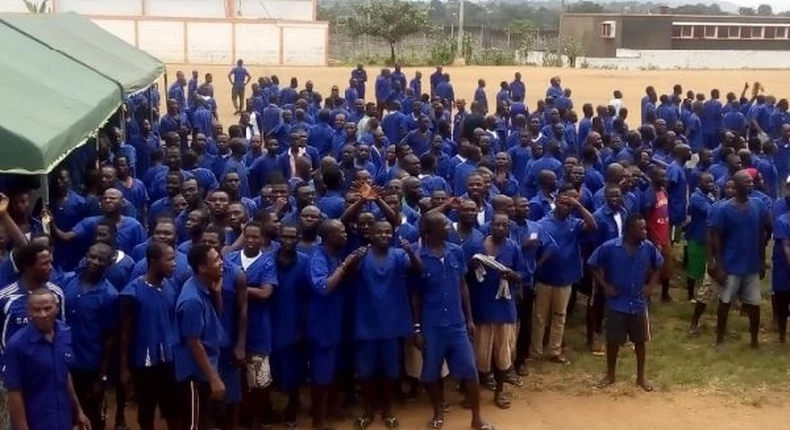The Ashanti Regional Command of the Ghana Prisons Service has lamented how some young people who should not be in prison are languishing in the various correctional centers for undeserving reasons, causing congestion.
According to starrfm.com.gh, ASP-Richard Bukari, the regional public relations officer for the Prisons Service said this and appealed for help to free up the prisons.
He is reported to have said that the congestion in the various prisons could be traced to the imprisonment of young people for minor offences which should attract noncustodial sentences.
“Some youth are serving various jail terms at the prison facilities in the region for not being able to settle court fines as low as GHC250, a situation creating congestion at some facilities,” the news website quotes him as saying.
ASP Richard Bukari disclosed that the Kumasi Central Prisons which was originally built to accommodate 450 inmates now has over 3,000 inmates, a situation he says that not augur well for the service and also poses health hazards to the inmates.
He has appealed to philanthropists, Human Rights advocacy and other well-meaning organisations to help pay the minor court fines of some of the inmates to make them regain freedom and help decongest the prisons too.
“I will then appeal to individuals and organizations to assist the Prisons Service by paying fines of these inmates to allow those serving longer jail sentences to have space,” ASP-Richard Bukari
Congestion in Ghanaian prisons is an age-old situation that successive governments have not put in sufficient effort to address.
The Church of Pentecost, as part of its contribution to society, has built some ultramodern prison facilities in certain parts of the country, with some of the constructions still underway, in a bid to help ease the congestion in the rehabilitation facilities.
Aside from that, some human rights advocacy groups, and philanthropists have been doing their part to secure the release of some inmates who should not be put in prison due to the less severe nature of their offences.
There have also been calls on the country’s justice system to put measures in place to ensure only severe offenders are jailed while minor ones are given non-custodial sentences.

































